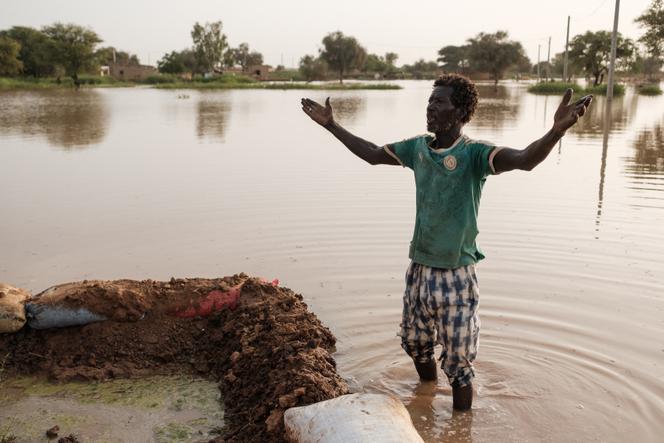


"The food security of Senegal is at stake," warned Boubacar Sall, one of the business leaders of the country's onion industry, which is key to the agricultural sector. At 68, the vice president of the interprofessional organization, which brings together thousands of small producers, had "never experienced damage on such a scale." The region of Podor, which alone supplies 46% of the country's onion production, is the hardest hit by flooding in the Senegal River valley, in the northeast of the country, since October 12.
According to Sall, who is trying to alert the authorities to the catastrophe experienced by hundreds of thousands of farmers, "the impact is considerable," as the flooding coincided with cultivation and sowing. For more than a month, vast areas have remained drowned under the river's waters, fed by intense rainfall – one of the effects of climate change in this arid land – and have exceeded rainfall season normals by 30%, according to the Institute for Research and Development.
In the Podor region alone, one of Senegal's breadbaskets, more than 200,000 people are directly affected, according to the national company for the development and exploitation of land in the Senegal River delta (SAED). In the three most sensitive departments along the river, ongoing flooding is putting the food security of almost 250,000 Senegalese people dependent on agriculture at increasing risk, according to SAED. This in a country far from food self-sufficiency, where agriculture supports 46% of households.
From Bakel, 650 km from Dakar in the far east of the country, to Dagana, 700 km downstream, the farmers and agri-business leaders interviewed spoke of an "unprecedented crisis." In this plain, where the gradient is almost non-existent, flooding has transformed a spit of land subjected to decades of drought into a string of islets where farmland has been submerged by a river tidal wave.
"Since the 1970s, these areas have been hard hit by global warming and drought," explained Assane Dione, coordinator of the Group for Research and Achievements in Rural Development, a French NGO operating in the Bakel and Matam administrative departments. "This has led farmers to move closer to the banks of the river to reduce the cost of irrigation and to take advantage of floods to grow flood-recession crops. But we were a little quick to forget that these are vulnerable, flood-prone areas. We're going to need a climate plan and massive investment to turn things around."
According to official figures, which are still provisional, over 16,000 hectares of farmland have been flooded in Senegal. In addition to the onion sector, the cultivation of okra (another essential foodstuff in the country), bitter eggplant, bananas, corn, millet, tomatoes and, above all, rice – a staple foodstuff for the Senegalese, but mainly imported – have been severely affected by this unprecedented crisis.
Three weeks after the peak of the floods, in Ballou, wedged between Mauritania and Mali and 700 km east of Dakar, hundreds of rice farmers were still bearing the full brunt of the rising waters. On October 31, Mouhamadou Souaré, a retiree of the French national rail service (SNCF) who returned to his native village to farm 7 hectares of land, observed fatalistically: "The farmers' 80 hectares of rice fields have been reduced to nothing." In 2023, his rice fields produced 1 tonne of rice. But not a single gram could be saved after the water rose to a height of 1.5 meters in the village.
"In absolute terms, the damage caused by the losses may seem relatively low, with 197 million CFA francs [€301,800] up in smoke," said Mbargou Lo, SAED's director in Bakel. "Behind this figure, thousands of households will be tipping into extreme poverty, with associated health risks, such as an expected rise in cases of malaria and pneumonia, as the floods drowned fertilizer storage warehouses. Ammonia and urea have been released into the environment."
On the ground, the absence of any visit by the minister of agriculture to the affected areas is causing bafflement among rural services and concern among the farming community. The looming crisis should automatically lead to an increase in imports. It also challenges the new Senegalese authorities' promise of food sovereignty.
Translation of an original article published in French on lemonde.fr; the publisher may only be liable for the French version.
